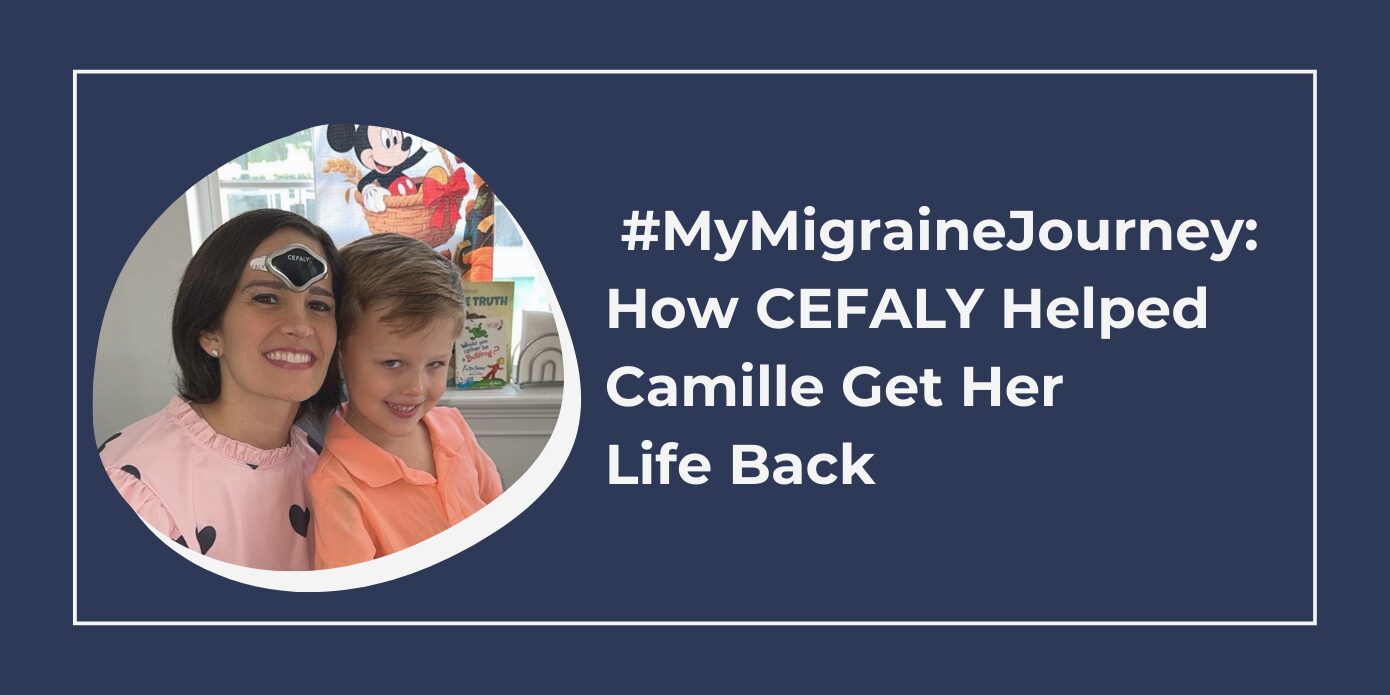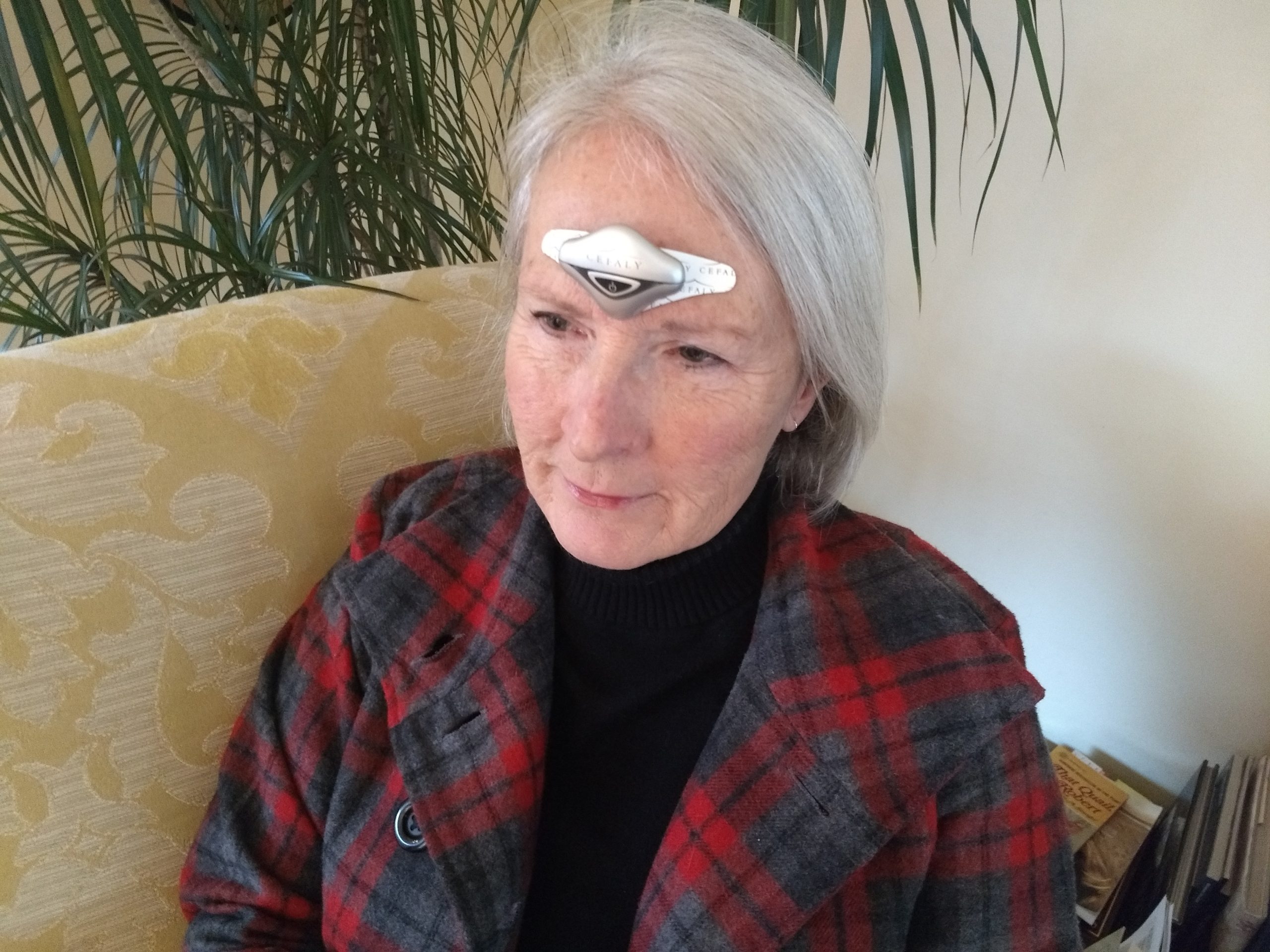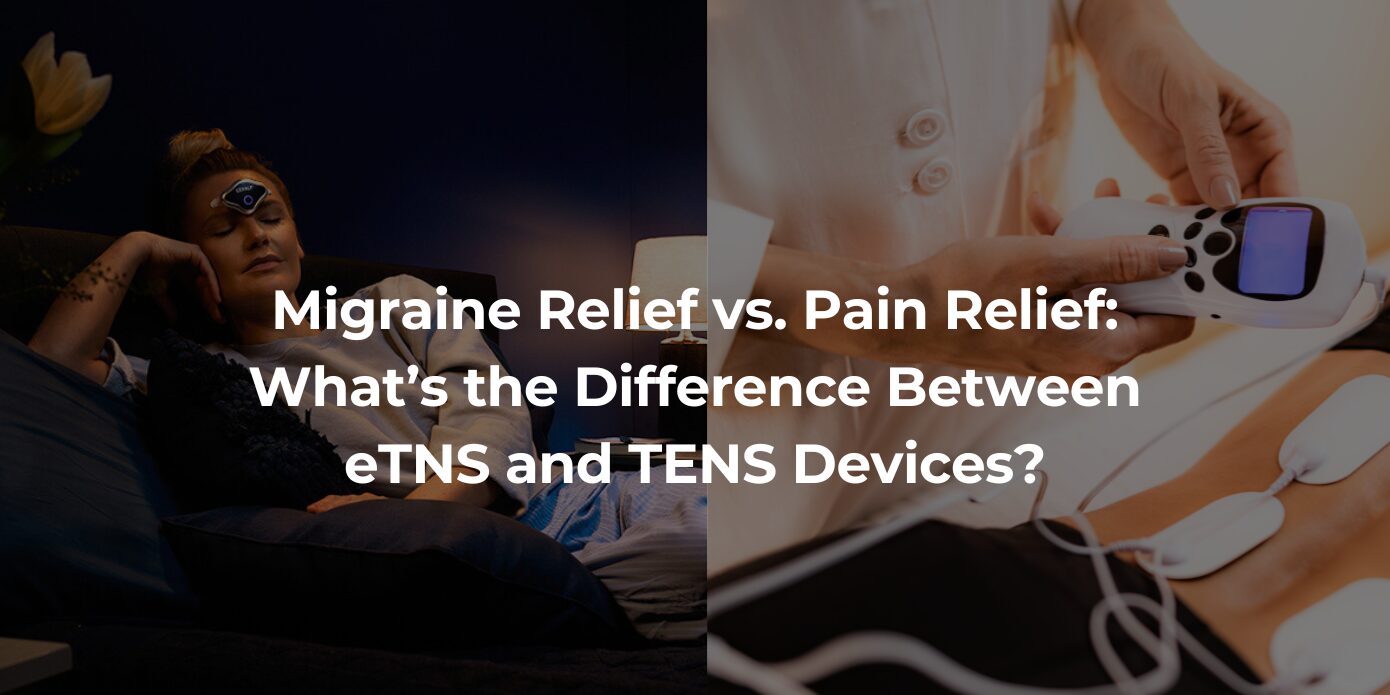CEFALY Technology CEO Jen Trainor McDermott joined CEFALY in 2019 after a career as an executive in skincare and health supplements. In honor of National Women’s Small Business Month, we sat down with Jen to talk about her perspectives on leadership, success, and migraine advocacy.
1. She believes that connection with the customer is everything.
One of the best pieces of business advice Jen ever received was from a member of the Lauder cosmetics family: “Once you touch the customer, you’re halfway there.” She took those words to heart and brought them to her leadership of CEFALY.
What Jen finds deeply meaningful is talking to CEFALY customers about the pain they experience and hearing “how much CEFALY helps them, and gets them back to life. … Ultimately, that’s what I love to do,” she says. “I just love to help our customers feel better about themselves.”
2. She wants customers to have a long-term relationship with CEFALY.
For any migraine treatment plan to be successful, it has to be consistent over time. That’s why CEFALY is focused on education, coaching and support.“Our team — our customer service team, our marketing team, our sales team — they’re constantly out there talking about CEFALY, making sure we focus on patient success,” Jen says. “It’s not about just selling one more device to a customer. It’s making sure that they see the success they need to see from CEFALY.”
3. Her best advice for people living with migraine: Put yourself first.
Jen knows it’s not easy to practice self care and prioritize your own health — she has a hard time following her own advice! But for people with migraine, it’s essential.“It’s very hard to defend yourself and say, ‘I’m going to stop and take time for myself.’ That’s actually OK. That’s what you should be doing,” Jen says. “That’s how you will be a success in life, on so many levels, if you put yourself first. You have to feel good in order to be a success.”
4. Jen’s secret to successful goal-setting: Write everything down.
A stack of notebooks is a permanent feature on Jen’s desk. She takes notes in every meeting and also uses them for time management, writing down goals for every day, week and month.“Sometimes I meet them, and sometimes I don’t,” she says. “So it’s not a reward-punishment: ‘Hey, I didn’t get all these things done today.’ It’s ‘Hey, whydidn’t I get all these things done today?’” It’s a constant process of analysis and adjustment.
5. Her approach to leadership: Support, not silos.
“There should never be a silo between leadership or executives and junior members of your team,” Jen says. “Everybody should be working together, regardless of what their title is.” That happens all the time at CEFALY, where employees from different teams and roles often collaborate on projects.
Jen doesn’t believe in micromanaging her team, but also wants to make people have the support they need to succeed. “Sometimes that’s a little hard when you’re a small business and you’re spread across so many areas,” she says, so she focuses on managing the overall bandwidth of the team. Jen also encourages all CEFALY employees — many of whom live with migraine — to focus on their work-life balance and make sure they get the accommodations they need.
6. She’s always looking to the future.
Jen is the only female CEO of a migraine medical device company, but she doesn’t believe gender should define her professionally. “Everybody should be judged on the same factors,” she says. “What did you deliver in your past? And what do you see going forward?”
It’s important for every leader to stay focused on what lies ahead. As Jen puts it: “What is your go-forward strategy? What is the path you want? And what’s your support system to help you get there?”
7. Migraine advocacy is a huge part of CEFALY’s mission.
“Dealing with migraine is a pain that people sometimes just can’t understand,” Jen says. People without migraine don’t comprehend what it feels like, and how frustrating it can be to miss work and important life events because of migraine pain.
CEFALY’s education and advocacy efforts are intended to help everybody understand: People with migraine “want to feel good, and get back to life,” Jen explains. “And that’s why we’re here. We want to get them back to life.”














